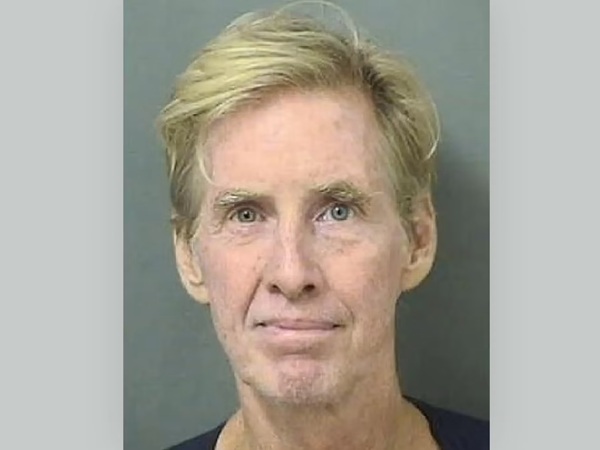FORT PIERCE, Fla.—A federal jury convicted Ryan Wesley Routh on Tuesday of attempting to assassinate President Donald Trump during a golf outing at his West Palm Beach resort last year, delivering a swift rebuke to the 59-year-old Hawaii resident who represented himself in a chaotic trial marked by political tensions and courtroom rebukes.
The verdict, reached after just over two hours of deliberations, found Routh guilty on all five counts: attempted assassination of a major presidential candidate, assaulting a federal officer, possessing a firearm in furtherance of a crime of violence, being a felon in possession of a firearm and ammunition, and possession of a firearm with an obliterated serial number. The attempted assassination charge alone carries a maximum penalty of life in prison, with sentencing to be determined later.
Routh, who often referred to himself as “the defendant” during the proceedings, showed little reaction as the foreman announced the guilty verdicts in the packed U.S. District Court courtroom. U.S. District Judge Aileen Cannon, who presided over the 12-day trial, scheduled a status conference for Oct. 15 to discuss sentencing.
“Today’s guilty verdict against would-be Trump assassin Ryan Routh illustrates the Department of Justice’s commitment to punishing those who engage in political violence,” Attorney General Pam Bondi said in a statement. “This attempted assassination was not only an attack on our president, but an affront to our very nation itself.”
The case stemmed from the Sept. 15, 2024, incident at Trump International Golf Club, where Routh allegedly hid in dense shrubbery along the perimeter fence for more than 11 hours, armed with a semiautomatic SKS-style rifle equipped with a scope. Prosecutors portrayed it as a meticulously planned sniper attack, with Routh tracking Trump’s schedule for weeks and even attempting to procure an anti-aircraft weapon to target Air Force One.
According to trial testimony, U.S. Secret Service Special Agent Robert Fercano, patrolling a hole ahead of Trump’s group, spotted the partially obscured face of a man in the brush near the sixth hole around 1:30 p.m. Fercano testified that he immediately saw the rifle barrel pointed directly at him, prompting him to fire three rounds at Routh in self-defense and to protect the president. Routh fled without returning fire, dropping the weapon as he ran to a nearby road and sped away in a black Nissan Xterra.
A witness, identified in court as Douglas McGee, pulled over after spotting Routh sprinting across traffic and provided a description that helped authorities apprehend him minutes later on Interstate 95, about 40 miles north of the golf course. McGee identified Routh from a helicopter-flown vantage point, dashcam footage of which was shown to jurors.
Prosecutors Christopher Browne and Teeluck Seebaran methodically presented evidence of Routh’s intent, including cell phone data placing him near the golf course for days beforehand, security footage of his arrival, and a handwritten note found in his vehicle that read, in part, “Dear World, this was an assassination attempt on D. Trump but I am so sorry I failed you.” Text messages and WhatsApp chats recovered from Routh’s phone revealed discussions about smuggling migrants and acquiring weapons, including a query to an associate about the rifle’s range for a shot from 375 yards away — the distance to the fifth hole where Trump was golfing.
Routh’s decision to forgo a court-appointed attorney led to a lopsided affair, with the judge repeatedly interrupting his rambling opening statement and cross-examinations. On the trial’s first day, Cannon admonished him for “making a mockery” of the court after he veered into philosophical musings on human history and suggested the proceedings lacked “humanity.” During closings, Routh conceded to jurors that he had planned the attempt but argued it was a symbolic act of protest, a claim prosecutors dismissed as irrelevant to his clear intent to kill.
The conviction comes amid a surge in political violence that has gripped the nation. The Florida attempt occurred just nine weeks after a gunman wounded Trump at a rally in Butler, Pennsylvania, on July 13, 2024. More recently, the fatal shooting of conservative activist Charlie Kirk in Orem, Utah, last week has heightened fears over attacks on public figures.
FBI Director Kash Patel, in a statement, called Routh’s actions “a disgusting act — mere weeks before an election and only months after a separate assassination attempt came dangerously close to succeeding.” Trump, who won re-election in November 2024, has not publicly commented on the verdict as of Tuesday evening.
Routh, a felon with a prior 2002 conviction in North Carolina for possessing an explosive device, faces mandatory minimum sentences on some counts that could ensure he spends the rest of his life behind bars. His son, Oran Alexander Routh, is serving a seven-year sentence for unrelated child pornography charges, a matter that surfaced during the investigation but was not part of the trial.
As Routh was led from the courtroom in shackles, supporters — a small group including family members — shouted encouragements, while others outside the federal courthouse in Fort Pierce held signs reading “Justice for Trump.” The quick jury decision underscored the weight of the evidence, closing a chapter in one of the most high-profile political threat cases since Trump’s return to the White House.


